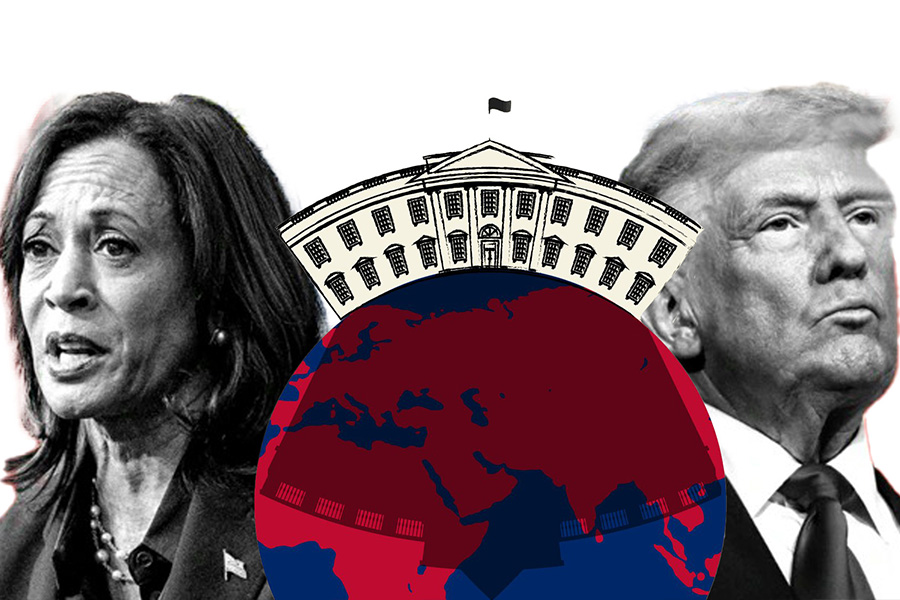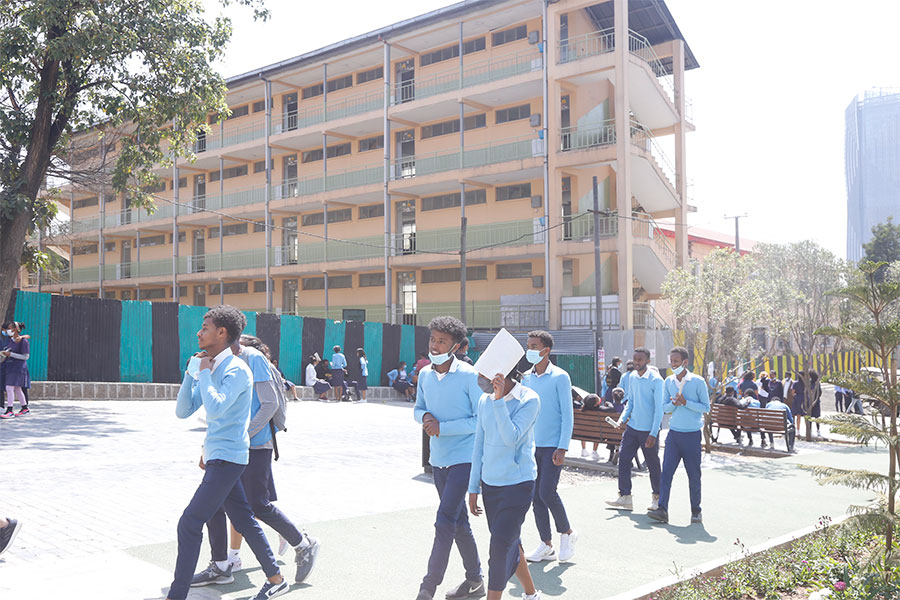
Fortune News | Nov 14,2020
Dec 19 , 2018
By
The sharpest differences of opinion can be over how conflicts can be managed. Everyone has an opinion about it, and it is tough to avoid. There is conflict in every choice that is made since every option has consequences.
Choosing which graduate school to attend or what field of study to peruse does not have much consequence on people beyond those that a person is directly associated with. But choosing where resources should be allocated is something wholly different. Such decisions have consequences, and the allocations of these resources to different segments of the public substantially elevate the probability for conflicts.
If indeed, Ethiopia continues along the path of multiparty democracy - toward which various reforms have taken place - the nation would be choosing to manage its socio-economic and political conflicts in a manner it has never done before.
Prime Minister Abiy Ahmed’s (PhD) meeting with Patrick Gaspard, president of the Open Society Foundation, an international institution founded by the most famous liberal billionaire, George Soros, is one of several indicators that the incumbents are trying to take the plunge into multipartyism.
Indeed, that by itself will not get the Prime Minister any points. Only institutional and policy reforms have meanings. But it is inspiring to see that the nation is not shying away from the support it can get. This does not mean that the incumbents should wag their tail for every international institution or Western government that comes along with new ideas. But it is important that they are in good company.
It is a company that former administrations have kept, but whose views they have actually spurned. Pluralism has not been popular in Ethiopia, where subsequent governments have shown skepticism of its influences. And whatever their ulterior motives may have been, their most popular and persistent arguments against it have been that conflict will run rampant under pluralism.
Indeed, unattended conflict brings chaos. But the solution cannot be avoiding conflict altogether, since there has never been any historical episode where that has happened. And as far as human studies are concerned, it would be unproductive to do away with conflict anyways. For without conflict, which in its most basic concept refers to a difference of opinions, there will not be any intellectual or moral development. The human drive to know the unknown may well be stunted.
But the issue remains that conflict, for all its benefits, is dangerous. When it exists in a country without strong institutions and an informed public, managing it would be tantamount to mediating a dogfight.
Creating barriers that restrict freedom of assembly and free speech are effective means of nipping conflicts in the bud. It is also the easiest means to snuff out conflicts, which is perhaps why many governments prefer to opt for it. Conflict threatens to crack open the safe and cozy world to which we all ascribe, which is probably why individuals give into racist ideologies or group think.
Compromises have their complications, because they force us to find alternatives and to rise above the either-or dichotomy that we easily fall into. For we often believe that otherwise, everything will fall apart. But this is not true, and should not be how we approach conflicts that inevitably arise in any country over virtually any issue.
The compromise would be to understand that while conflict can lead to chaos, eliminating it altogether would halt progress. It will also allow discussions that need to come out into the open to fester under the surface until a point of no return is reached.
Multiparty democracy is not perfect. If there is anything to be said about the world’s oldest democracies, it is that it is a work in progress. But it is best suited to manage conflicts by reducing its worst outcomes and enhancing its best effects.
It is a compromise toward the centre that attempts to apply the best inputs from all extremes and shakes off the worst instincts of those at the sharp ends. It is the only system that has been known to bring a balance.
PUBLISHED ON
Dec 19,2018 [ VOL
19 , NO
973]

Fortune News | Nov 14,2020

View From Arada | Nov 02,2024

Fortune News | May 25,2019

Commentaries | Jul 02,2022

Agenda | Nov 13,2021

Addis Fortune | Nov 04,2020

Sunday with Eden | Sep 17,2022

Life Matters | Feb 08,2020

Editorial | Sep 10,2023

Editorial | Nov 29,2020

Photo Gallery | 178194 Views | May 06,2019

Photo Gallery | 168402 Views | Apr 26,2019

Photo Gallery | 159173 Views | Oct 06,2021

My Opinion | 137055 Views | Aug 14,2021
Commentaries | Oct 25,2025

Dec 22 , 2024 . By TIZITA SHEWAFERAW
Charged with transforming colossal state-owned enterprises into modern and competitiv...

Aug 18 , 2024 . By AKSAH ITALO
Although predictable Yonas Zerihun's job in the ride-hailing service is not immune to...

Jul 28 , 2024 . By TIZITA SHEWAFERAW
Unhabitual, perhaps too many, Samuel Gebreyohannes, 38, used to occasionally enjoy a couple of beers at breakfast. However, he recently swit...

Jul 13 , 2024 . By AKSAH ITALO
Investors who rely on tractors, trucks, and field vehicles for commuting, transporting commodities, and f...

Oct 25 , 2025
The regulatory machinery is on overdrive. In only two years, no fewer than 35 new pro...

Oct 18 , 2025
The political establishment, notably the ruling party and its top brass, has become p...

Oct 11 , 2025
Ladislas Farago, a roving Associated Press (AP) correspondent, arrived in Ethiopia in...

Oct 4 , 2025
Eyob Tekalegn (PhD) had been in the Governor's chair for only weeks when, on Septembe...

Oct 25 , 2025 . By YITBAREK GETACHEW
Officials of the Addis Abeba's Education Bureau have embarked on an ambitious experim...

Oct 26 , 2025 . By YITBAREK GETACHEW
The federal government is making a landmark shift in its investment incentive regime...

Oct 29 , 2025 . By NAHOM AYELE
The National Bank of Ethiopia (NBE) is preparing to issue a directive that will funda...

Oct 26 , 2025 . By SURAFEL MULUGETA
A community of booksellers shadowing the Ethiopian National Theatre has been jolted b...